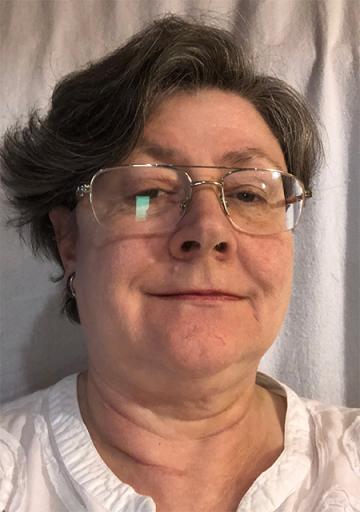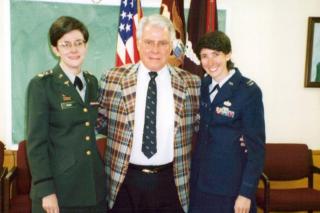Why did you decide to join the army?

I would never have expected myself to end up in the Army, but even as a civilian, I could figure out that while we could fly over anything we want, to hold a territory, there must be troops on the ground. And it will be the people on the ground who fall out of trucks, get injured by IEDs (improvised explosive devices), or wounded by mortars and other weapons fire.
I went in for four years — the Army kept offering interesting assignments, excellent coworkers and leaders, so I stayed on active duty, 1991-2011. I finally deployed in 2005 — my hospital was in authority for 45 weeks, during which we received 1660 traumas.
What lessons from the military have translated into your career?
On the positive side, I’m impressed by military healthcare's emphasis on data, research, and application of evidence. As an example, we learned that even in the summer, with temperatures up to 140°F, patients were becoming hypothermic during transport from the combat support hospital to Baghdad. By the end of my deployment, patients were wrapped in what they called "body bags." While unlovely, they helped patients maintain their body temperature.
On the sadder side is the failure to actually learn from the lessons we have paid for in blood, on the battlefield, and in training and application. This is not unique to the military. It seems endemic to our culture, as we are future-focused and don't demonstrate that we learn from history.
As a veteran, what does Veterans Day mean to you?
Since our citizens are our soldiers, sailors, airmen, and coast guardians, we need to be cognizant of the sacrifices they and their families have made in service of our nation. We should also be prepared to support them in return, especially as service members who have seen combat return to civilian life, often bearing the triad consequences of traumatic brain injury, PTSD, and disability.
Why did you decide to attend Simmons?
After two years at the University of Michigan, I went back home to Boston and interviewed at BU, Northeastern and Simmons with the intent to become a physical therapist. Only the Simmons advisor suggested transferring and recommended nursing as my undergrad, with the potential then to continue with the masters in PT. Despite my initial response to the idea ("Bedpan city!"), her recommendation was logical. In addition, when I called back, she actually remembered my name, which BU, Northeastern, and Michigan did not.
In my second year at Simmons, when the nursing program did medsurg and pediatrics, I fell in love with the field’s varied potential. Even when I did 18 months of postpartum (as an instructor, in the Army LPN program at Fort Bragg in Fayetteville NC, OB is not my thing!), I have never been bored. There is always something to learn, something and someone to teach, and the possibility to make a difference in a person's life.
Tell us about your volunteer work with the Community Day Center.
I do a lot of basic assessment and patient teaching to the guests and also the staff. I often reinforce that the guests are correct when they think they need to see a provider — and encourage them to follow up, especially for "silent" or asymptomatic issues, such as hypertension. I do a lot of foot care — many people are loath to have someone see (and smell) their feet. However, homeless persons walk ~10 miles/day, so socks and, when possible, good shoes are very important.
One of the very first people I worked with at the Day Center was Bob M., who developed trench foot (I’ve seen one case in my now 40 years of nursing). He had been treated at a Boston area hospital and was in-patient for a week, released to a rehabilitation center where he was for only a week before he discharged "home" (to the street) to do self-foot-care. I was astonished that he actually healed his feet since homeless persons often face challenges in getting adequate nutrition.
I also help the guests and the staff with paperwork; for example, some disability applications have up to 23 pages to complete. People who are homeless often have mental health issues, addiction problems, as well as physical health problems — they may not have the ability to forge through 23 pages of paperwork.
Another facet of working at the Day Center has been that I have been able to precept nursing students from UMass, BU, and Simmons. Many homeless people suffer from complex physical as well as mental health issues. I hope nursing students learn most essentially that homeless persons are people. If the students encounter people who are homeless in their future practice, they treat them with compassion and are able to better advocate for their patients.

